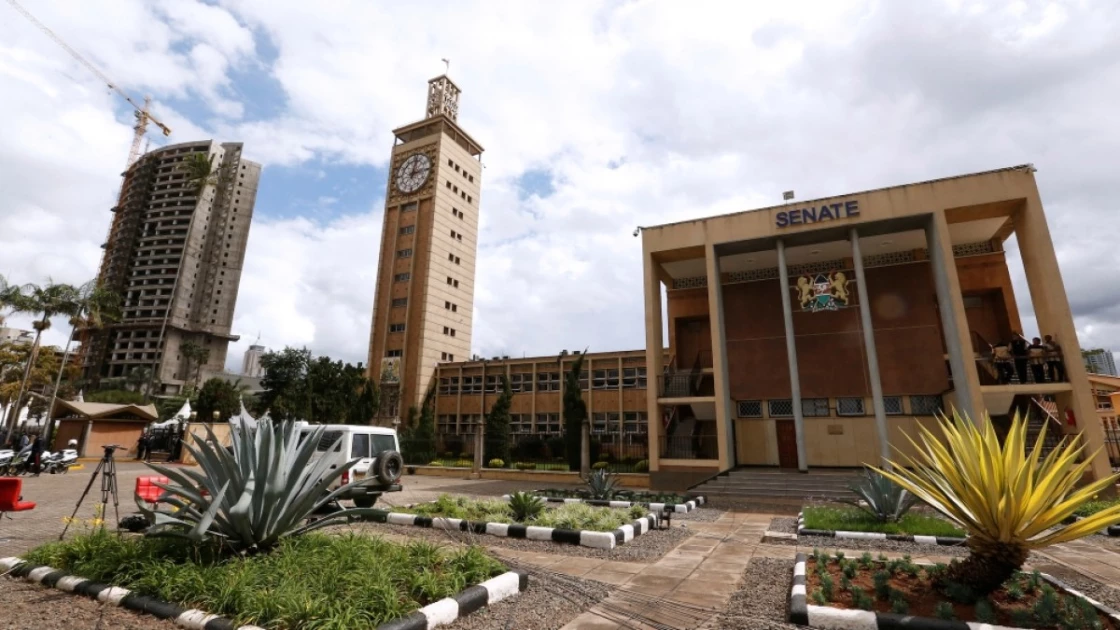Finance Bill 2024 bad for Kenyans and the economy - Deloitte

The Houses of Parliament Bill, 2023 seeks to end National Assembly, Senate rivalry. | PHOTO: FILE/REUTERS

Audio By Vocalize
In a briefing session organised by Deloitte Kenya to analyse the Finance Bill, 2024, speakers said the proposed amendments will have notable economic and fiscal impacts, in a country where citizens are already feeling the burden of increased taxes.
Deloitte East Africa Tax and Legal Leader Fredrick Omondi said the government measures that increase the tax burden raise significant concerns as they will have the impact of reducing purchasing power and increasing the cost of doing business which will be negative for the mwananchi and the economy at large.
"The frequent changes in tax policy also create more risks for businesses and make it costlier for taxpayers to comply and does not augur well for our country. Whereas the drive to grow tax revenue as a percentage of GDP is understandable, the means of achieving this should not be through overburdening existing taxpayers and businesses with additional taxes, but rather greater focus on enhancing compliance and growing the economy to improve incomes and thereby generate higher taxes," Omondi said.
He added that there is need to relook some of the measures introduced via Finance Act 2023 that have brought about significant challenges. Key among them include the imposition of e-TIMs as a condition for deductibility of expenses, abolition of waiver of penalties and interest, frequency of remitting withholding tax to KRA, tax burden on employee occasioned by introduction of Affordable Housing Levy at the rate of 1.5% of gross emoluments, Social Hospital Insurance Fund at the rate of 2.75% of the gross pay, new tax bands at the rate of 32.5% and 35% and increase in the National Social Security Fund (NSSF) contributions all at the same time.
Speaking at the session, Deloitte East Africa Financial Advisory Leader Gladys Makumi said despite the target for Kenya to become less debt-reliant, the proposed imposition of levies on essential household items, against the backdrop of inflation-impacted salaries and wages, would result in a decline in private consumption.
Peter Njenga, Deloitte East Africa Tax and Legal Senior Manager said the proposal to tax alcoholic products based on content of pure alcohol will see a reduction of excise duty on alcoholic products with low alcohol percentage by volume such as beer and an increase in excise duty on spirits and wines with high alcohol content.
"The introduction of eco levy on various office equipment, smartphones and computers will reduce affordability of these commodities, increase the cost of doing business and negatively impact the welfare of the local mwananchi," he said.
The Finance Bill 2024 has also proposed the introduction of Advance Pricing Agreements (APAs), a mechanism that allows Multinational Enterprises (MNEs) involved in inter-company transactions to agree the appropriate mechanism for determining the transfer prices with KRA prior to the transactions happening.
Speaking on this, Deloitte East Africa Tax and Legal Partner Doris Gichuru said if well implemented, the APA process will provide certainty on the operation of MNEs by enabling such companies to enter into binding agreements with the revenue authority on the determination of transfer prices and reduce tax disputes.
The Finance Bill 2024 was published on May 9, 2024 and tabled before the National Assembly on May 13, 2024. It proposes various amendments to the Income Tax Act, the Value Added Tax Act 2013, the Tax Procedures Act 2015, the Tax Appeals Tribunal Act 2013, the Excise Duty Act 2015 and the Miscellaneous Fees and Levies Act 2016, among other Acts of Parliament.
Parliament through the Finance and National Planning committee has invited the public to submit comments on the bilål by May 28, 2024 before it is approved by Parliament and assented into law in June.
Kenyans have already expressed dissent to the bill, with many asking MPs to reject it and make amendments that favour tax payers.
Kenyans are already overtaxed, but President William Ruto insists he will increase taxes for Kenya to be self-reliant.


Leave a Comment